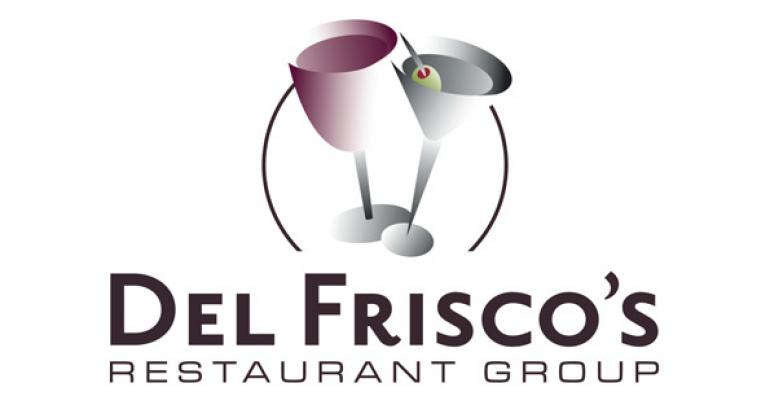
It’s unlikely we’ll see a lot of restaurant companies go private this year, or next, at least until some of the high valuations for publicly traded chains start coming down. But there may be two exceptions: Del Frisco’s Restaurant Group and Bravo Brio Restaurant Group.
First, Del Frisco’s, which is up 5 percent today, probably in part because an analyst indicated that its valuation could attract interest from a prospective buyer.
The company’s sales have been fine. Del Frisco’s Double Eagle same-store sales rose 4.8 percent in the fourth quarter and 5.7 percent for the year. Sullivan’s Steakhouse same-store sales rose 1.8 percent for the quarter and 0.4 percent for the year.
 But earnings for the quarter missed forecasts. And the company cut its earnings guidance for 2015.
But earnings for the quarter missed forecasts. And the company cut its earnings guidance for 2015.
Paul Westra, analyst at Stifel, said disappointing earnings at the company has depressed its stock well below the growth multiple he thinks Del Frisco’s deserves.
Even after today’s pop, Del Frisco’s stock is trading at $20 a share, $10 below the $30 a share he thinks it’s worth given its development potential. That difference, he said, could lure prospective buyers, sensing an opportunity.
“Although we have no knowledge of any M&A discussions, we continue to believe that [Del Frisco’s] may attract go-private interest,” Westra wrote.
The company’s enterprise value multiple — the price required to buy the company at the current stock price — was 11 times trailing cash flow entering today. A buyer that considers Del Frisco’s a legitimate growth company could easily consider paying more for the company in a buyout scenario.
Another take-out candidate is Bravo Brio Restaurant Group. The Ohio-based company has struggled to get sales traction and its stock has been depressed as a result.
The company owns Bravo Cucina Italiana and Brio Tuscan Grille. In the fourth quarter, Bravo’s same-store sales fell 3.9 percent. For Brio, they decreased 4.2 percent. For the year, the concepts’ same-store sales have fallen 5.5 percent and 4.6 percent, respectively.
 Given the broad improvement in the restaurant industry, those sales numbers are weak. But the stock barely budged, because its valuation was already comparatively low to begin with. The company’s enterprise value multiple is 7 times cash flow.
Given the broad improvement in the restaurant industry, those sales numbers are weak. But the stock barely budged, because its valuation was already comparatively low to begin with. The company’s enterprise value multiple is 7 times cash flow.
That’s below the multiples other casual dining chains are receiving. Piper Jaffray Analyst Nicole Miller Regan said in a note yesterday that the casual dining chains she covers have an average multiple of 9.9. Her entire restaurant universe has an average multiple of 12.5.
That 7x multiple is also lower than the historic, restaurant acquisition multiple of 7.7, she wrote.
That kind of low multiple could attract buyers that might sense an opportunity for a quick turnaround, especially if it’s believed that sales could improve quickly. The chains combined have just 107 units in 33 states, so there’s plenty of growth potential.
That said, the chains are in the Italian category, among the weakest in the restaurant business at the moment.
Bravo Brio also leases its restaurants and doesn’t own a lot of real estate, which means there isn’t the easy lever of a sale-leaseback that a buyer could push. And the company recently increased its long-term debt to pay for share buybacks, so it no longer has the clean balance sheet it once had.
Still, the market remains full of potential buyers, likely backed by readily available, low-cost debt, who could take a chance on either of these chains.





